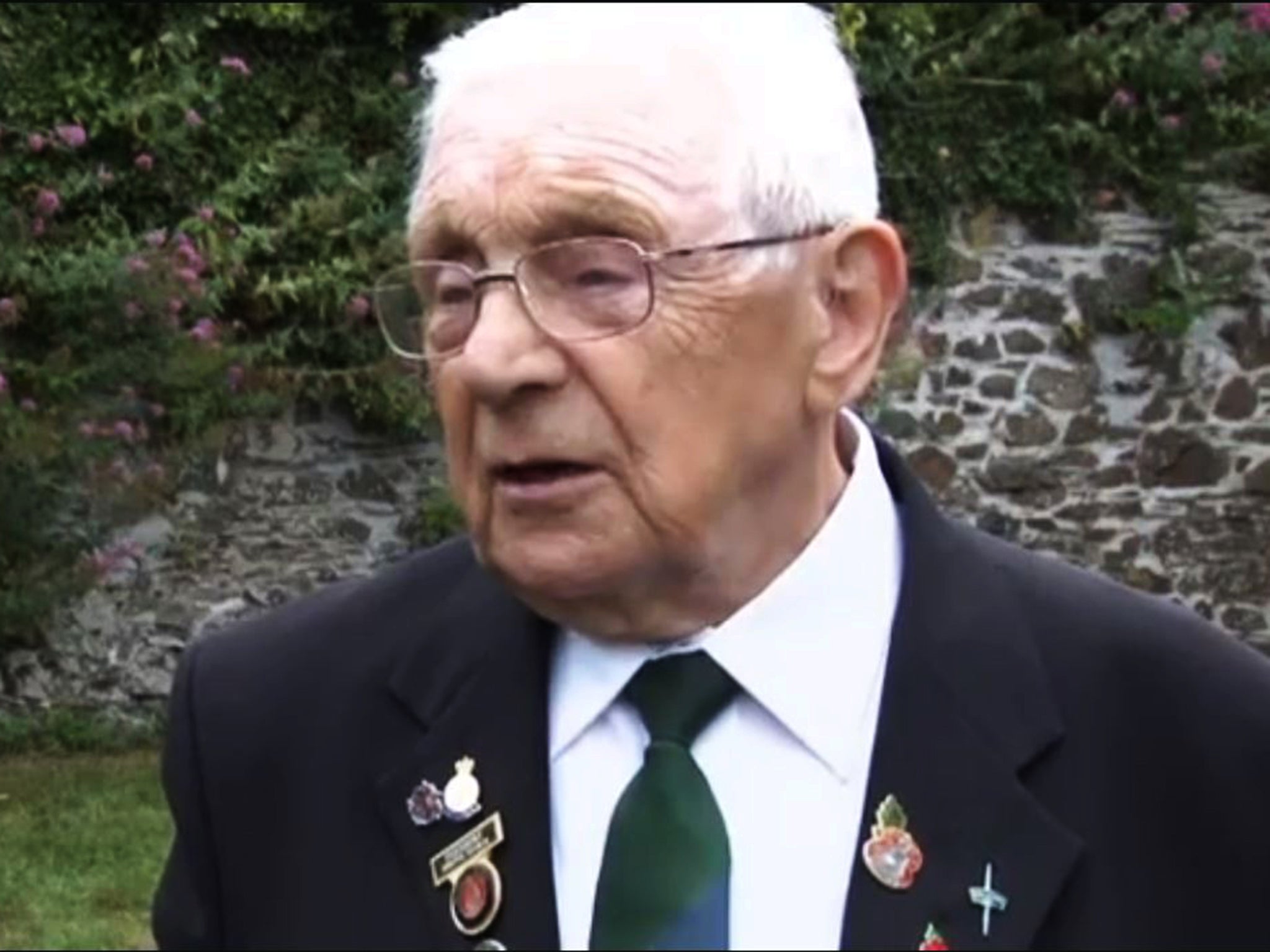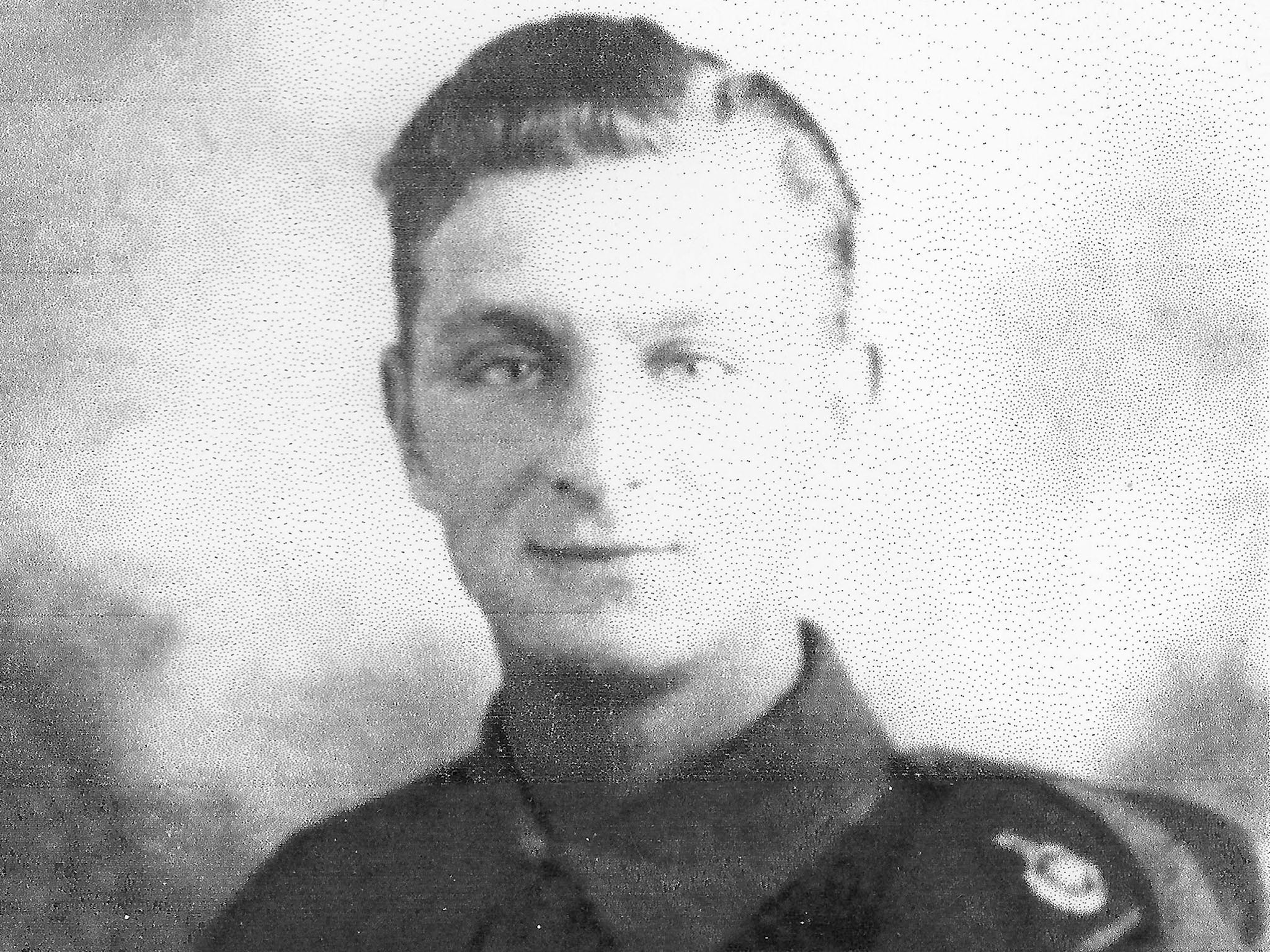Ken Parker: Former royal marine who fought in the Battle of Port-en-Bessin
He took part in one of the most daring, most successful but perhaps least recognised raids of the Second World War

Your support helps us to tell the story
From reproductive rights to climate change to Big Tech, The Independent is on the ground when the story is developing. Whether it's investigating the financials of Elon Musk's pro-Trump PAC or producing our latest documentary, 'The A Word', which shines a light on the American women fighting for reproductive rights, we know how important it is to parse out the facts from the messaging.
At such a critical moment in US history, we need reporters on the ground. Your donation allows us to keep sending journalists to speak to both sides of the story.
The Independent is trusted by Americans across the entire political spectrum. And unlike many other quality news outlets, we choose not to lock Americans out of our reporting and analysis with paywalls. We believe quality journalism should be available to everyone, paid for by those who can afford it.
Your support makes all the difference.Kenneth Parker was a 17-year-old royal marine commando who when he landed on Gold Beach, Normandy, under heavy fire on D-Day.
There the soldier, who has died aged 88, took part in one of the most daring, most successful but perhaps least recognised raids of the Second World War: Operation Aubery, also known as the Battle of Port-en-Bessin.
After surviving the sinking of five of royal marines 47 Commando’s 14 landing craft by Nazi shells, mines or steel girders at Asnelles, Corporal Parker, nicknamed “Pixie” because of his small stature, swam and waded ashore to linkup with fellow survivors, still under heavy fire from the Nazis’ 352nd Division of Grenadiers and other defenders.
By the time they hit the beach, 47 Commando had suffered 76 men killed, drowned, wounded or missing while many had jettisoned their weapons, ammo or wirelesses to stay afloat. Parker and the surviving 340 men then embarked on a 12-mile hike behind enemy lines towards their objective, the Nazi-occupied Port-en-Bessin, vital to landing petrol from England to support the Normandy invasion and advance through France.
The port was the Normandy terminal of the Pipe-Lines Under the Ocean operation from the Isle of Wight, crucial for fuelling tanks and other vehicles for the push towards Berlin.
As they pressed to take Port-en-Bessin, notably the two 200ft cliffs they called the “Western Feature and the Eastern Feature”, Parker and his comrades faced minefields, heavily manned bunkers, machine-gun nests, snipers and hidden flamethrower positions.
Those who had lost their weapons during the landing picked up German weapons – Schmeisser submachine guns and Bren-gun-like – after defeating the Nazis in firefights.
The commandos also suffered heavy losses from two Nazi Vorpostenboot, or flakships, in the harbour, of which they had not been warned.
Of around 400 men of 47 Commando who landed in Normandy and pushed on through France, Belgium and Holland, only 88 survived the war.

Kenneth Parker was born in Bristol in 1926. After leaving school at 16, he worked in a local brewery but was soon sacked for “having a crafty drag” on a cigarette. Wondering how to break the news to his mum, he passed a royal marines recruitment office, where he lied about his age and was given a form for his parents to sign.
“On arriving home, my mother wanted to know what I was doing home at that time. I told her I had some bad news and good news – the bad news was I had lost my job, the good news was that if she signed the form I’d have another one.”
He was sent for royal marines training first at Lympstone, Devon, then at Dalditch. One of his exercises was going out into the Channel on landing craft in the middle of the night, landing at Deal or Dover and seeing how far inland they could get by noon the same day. Next, he was sent to Achnacarry in the Lochaber region of the Scottish Highlands for “live fire” commando training under the legendary Lord “Shimi” Lovat, chief of the Clan Fraser, crossing rivers by rope or crawling under barbed wire and winning his coveted green beret.
In the early minutes of 6 June 1944, D-Day, Parker and half of 47 Commando set sail for Normandy on HMS Princess Josephine Charlotte while the other half were on SS Victoria. “The seasickness was appalling,” one of Parker’s fellow commandos, George Amos, recalled. “My memory is of sitting there, hands green with bile when suddenly there was an almighty bang as our landing craft was hit. You felt it right through. I was carrying a Thompson [sub]machine gun and a Bangalore torpedo, but when you’re fully loaded you can’t swim, so you get rid of your equipment. I came ashore with nothing”.
Some men came ashore without boots or even their trousers, he added.
Both ships dropped their landing craft at 0800 hours and Parker got ashore under intense fire at 0900. “We landed a little off course at Asnelles, Gold beach, with heavy loss of life and only two of our landing craft were able to return to our ships” Parker recalled. “After regrouping, we fought our way with some heavy and some light fighting through fields, hedges that were mined and snipers causing us some concern. My Y Troop reached Escures, along with Q Troop both having suffered heavy losses and we were given the task of holding it against sustained German counter attacks with little stocks of ammunition.
Hill 72, overlooking Port-en- Bessin, was taken, lost and retaken again.
“Terry Cousins reconnoitred the Eastern Feature and found a way up a zigzag path towards the [Nazi] blockhouse and wire fence, which was holding up the approach to the port. But Captain Cousins lost his life [to a grenade as he and four commandos stormed a Nazi bunker while yelling and firing from the hip]. All resistance at Escures was over by the evening of the eighth [8 June] as the Germans surrendered in hordes, the port was captured and we met up with the Americans from Omaha Beach.
“As we entered Fecamp, the population turned out in force to welcome us so strongly that it delayed us and assisted the departing Germans to depart. A large crowd blocked the city square, not that we minded much with the girls kissing us and we kissing them, hugs, flowers, bottles of wine, all the bells ringing – a lovely respite from action and I wish it could have gone on.”
Parker went on to fight through the rest of the war, notably at the Battle of the Scheldt in Belgium and Holland in November 1944 when he and 47 Commando took part in a seaborne assault on the Nazi-held Dutch island of Walcheren, taking heavy casualties before capturing the island. On 28 November 1945, Parker and 47 Commando arrived back at Haywards Heath, West Sussex, where the Commando was disbanded in January 1946.
Ken Parker married his partner Doreen weeks after the end of the war, but he had to serve in Ceylon until he was demobbed in September 1946. Back home, he worked as a milkman in Bristol, eventually rising to be district manager of the milk firm. As president of the Royal Marines Association (RMA) Bristol, he was very much hands on, organising reunions and parades, keeping up the RMA’s Facebook page, selling raffle tickets and returning as often as he could to Normandy with his fellow 47 Commando vets.
He spent his latter years in Pucklechurch, near Bristol, where he attended the local St Thomas a Becket church.
His wife Doreen predeceased him and he is survived by his son David, daughter Linda, grandchildren and great grandchildren.
“Ken was perhaps one of the most active WW2 veterans in any rank, in any of the Armed Forces, anywhere in the UK,” Patrick “Paddy” O’Connell, a BBC radio broadcaster whose father was in 47 Commando, told The Independent.
One of Ken Parker’s proudest possessions was an oil painting by David Rowlands showing 47 Commando Captain Terry Cousins storming a Nazi bunker above Port-en- Bessin. While his four men were wearing their combat helmets, Cousins was wearing his green marines beret and screaming at the Nazis to surrender. They did, but he died.
Parker and his comrades never understood how Cousins did not receive a Victoria Cross for his action.
Kenneth Parker, royal marine veteran of the Battle of Port-en-Bessin, born 18 June 1926, died 14 April 2018
Join our commenting forum
Join thought-provoking conversations, follow other Independent readers and see their replies
Comments